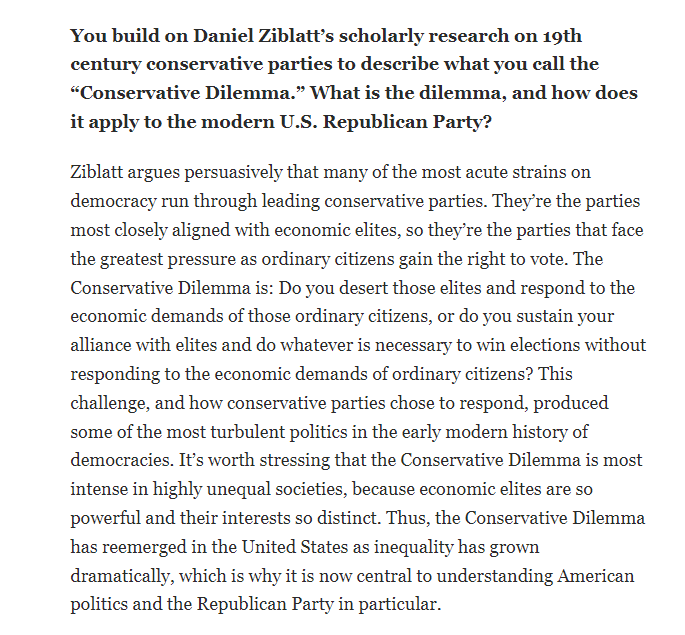
"At least 33 of those 50 companies have resumed donating to election objectors."
In capitalist societies, the business community is the pivot that decides whether democracy lives or dies. US business is ready to let democracy backslide in exchange for tax cuts and deregulation.
In capitalist societies, the business community is the pivot that decides whether democracy lives or dies. US business is ready to let democracy backslide in exchange for tax cuts and deregulation.
https://twitter.com/dziblatt/status/1576993058683424768
Here's Hacker and Pierson on the Conservative Dilemma. Do you take the L and compromise with mass interests (who tend to be sort of economically populist) or do you coalition with the rightwing culture warriors who threaten democracy? 

Corporate leaders like to say "we're just giving them money for the economic policies. We don't like their illiberalism!" But that's not how politics works. You're funding the whole agenda.
• • •
Missing some Tweet in this thread? You can try to
force a refresh








